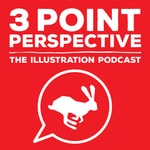Normale Mensen Bestaan Niet – Details, episodes & analysis
Podcast details
Technical and general information from the podcast's RSS feed.

Normale Mensen Bestaan Niet
Astrolads
Frequency: 1 episode/16d. Total Eps: 31

Recent rankings
Latest chart positions across Apple Podcasts and Spotify rankings.
Apple Podcasts
🇫🇷 France - socialSciences
13/11/2024#76🇫🇷 France - socialSciences
12/11/2024#59🇫🇷 France - socialSciences
11/11/2024#49🇫🇷 France - socialSciences
10/11/2024#38
Spotify
No recent rankings available
Shared links between episodes and podcasts
Links found in episode descriptions and other podcasts that share them.
See allRSS feed quality and score
Technical evaluation of the podcast's RSS feed quality and structure.
See allScore global : 28%
Publication history
Monthly episode publishing history over the past years.
Seks, drugs en Harry Potter: wanneer wordt het een verslaving?
Season 3 · Episode 6
jeudi 7 novembre 2024 • Duration 43:51
Je lijkt overal wel verslaafd aan te kunnen raken of te zijn, maar wanneer spreken we echt over een verslaving en wanneer is het simpelweg een gedraging die zo nu en dan niet gezond is? In deze aflevering van Normale Mensen Bestaan Niet gaan psychologen Thijs Launspach en Lennard Toma in op verslaving. Ook hebben de heren het over of het genetisch bepaald is of dat er iets anders aan te grondslag ligt. En… is Harry Potter verslavend? Bronnen en ander lees- en luister- en kijkvoer: - YouTube filmpje van universiteit Yale over verslaving: https://www.youtube.com/watch?v=RZ5LH634W8s - Johann Hari over verslaving in een TED talk: https://www.youtube.com/watch?v=PY9DcIMGxMs - Gabor Maté over verslaving: https://www.youtube.com/watch?v=ys6TCO_olOc - En nog een: https://www.youtube.com/watch?v=66cYcSak6nE - Verhaal over Rat Park en Bruce Alexander: https://en.wikipedia.org/wiki/Rat_Park Nerd-literatuur: - Rudski, J. M., Segal, C., & Kallen, E. (2009). Harry Potter and the end of the road: Parallels with addiction. Addiction Research & Theory, 17(3), 260–277. doi:10.1080/16066350802334595 - Iacono, W. G., Malone, S. M., & McGue, M. (2008). Behavioral disinhibition and the development of early-onset addiction: common and specific influences. Annu. Rev. Clin. Psychol., 4(1), 325-348. - Biolcati, R., Mancini, G., Pupi, V., & Mugheddu, V. (2018). Facebook addiction: onset predictors. Journal of clinical medicine, 7(6), 118. - Sihvola, E., Rose, R. J., Dick, D. M., Pulkkinen, L., Marttunen, M., & Kaprio, J. (2008). Early‐onset depressive disorders predict the use of addictive substances in adolescence: a prospective study of adolescent Finnish twins. Addiction, 103(12), 2045-2053. - Chen, C. Y., Storr, C. L., & Anthony, J. C. (2009). Early-onset drug use and risk for drug dependence problems. Addictive behaviors, 34(3), 319-322. - Valero-Solís, S., Granero, R., Fernández-Aranda, F., Steward, T., Mestre-Bach, G., Mallorquí-Bagué, N., ... & Jiménez-Murcia, S. (2018). The contribution of sex, personality traits, age of onset and disorder duration to behavioral addictions. Frontiers in Psychiatry, 9, 497. - Hadaway, Patricia F.; Alexander, Bruce K.; Coambs, Robert B.; Beyerstein, Barry (1979-11-01). "The effect of housing and gender on preference for morphine-sucrose solutions in rats". Psychopharmacology. *66* (1): 87–91. - Gage, Suzanne H.; Sumnall, Harry R. (2019). ["Rat Park: How a rat paradise changed the narrative of addiction"](http://researchonline.ljmu.ac.uk/id/eprint/9728/1/Rat-Park-acceptedmanuscript.docx). Addiction. *114* (5): 917–922.
Moeten we dealen met de dood? (met Tessa Di Corrado)
Season 3 · Episode 5
jeudi 31 octobre 2024 • Duration 01:03:49
We gaan allemaal dood. Dat is één ding wat zeker is. Maar waarom hebben we het er zo moeizaam over? En waarom zijn we er bang voor? In deze aflevering bespreken Thijs Launspach en Lennard Toma samen met dood-expert Tessa Di Corrado hoe dat komt en hoe we juist beter over de dood kunnen gaan praten met de mensen om ons heen. Een dodelijk goeie aflevering dus. (Deze grap moest er per se in van Lennard...) Bronnen en ander lees- en luister- en kijkvoer: - Luister natuurlijk naar de podcast van Tessa: Dealen met de dood - Lennards verhaal over hoe hij hoorde dat hij dood zou gaan binnen de kortste keren: https://www.lennardtoma.nl/post/gaatje-in-je-hoofd-zeker - Een artikel over hoe psilocyibine (het bestanddeel in bijvoorbeeld paddo’s waardoor je gaat trippen) depressie over doodgaan kan verminderen in mensen https://www.dana-farber.org/newsroom/news-releases/2023/psilocybin-eases-depression-in-patients-with-cancer-study-finds - Thijs heeft het over een boek dat hem rondom de dood veel heeft geïnspireerd, van Irvin D. Yalom, Tegen de zon inkijken - Boek waar Tessa naar refereert heet Helpen bij verdriet en verlies van Manu Keirse Nerd-literatuur: - Kastenbaum, R., & Costa, P. T. (1977). Psychological perspectives on death. Annual Review of psychology. - Wong, P. T., & Tomer, A. (2011). Beyond terror and denial: The positive psychology of death acceptance. Death studies, 35(2), 99-106. - Pérez-Mengual, N., Aragonés-Barbera, I., Moret-Tatay, C., & Moliner-Albero, A. R. (2021). The relationship of fear of death between neuroticism and anxiety during the Covid-19 pandemic. Frontiers in Psychiatry, 12, 648498. - Boyd, P., Goldenberg, J. L., Morris, K. L., & Puryear, C. (2020). Shutting the door on death: Low openness individuals become less open (to death) following mortality reminders. Journal of Personality, 88(2), 161-173.
Vriendschap: Waarom vrienden hebben als je ook alleen kunt zijn
Season 2 · Episode 10
jeudi 16 mai 2024 • Duration 53:56
Empathie: Hoe fijn kan inleven in een ander zijn?
Season 2 · Episode 9
jeudi 9 mai 2024 • Duration 51:22
Empathie voor anderen lijkt een enorme deugd te zijn als je het hebt. In deze aflevering bespreken Thijs en Lennard of dat ook echt zo is. Waar empathie uit bestaat en of er ook donkere kanten aan empathie zijn. Want inleven in een ander is leuk tot op zekere hoogte. Ook vertellen ze je wat over Theory of Mind, of empathie te trainen is én of ze huilen bij films.
Adverteren in deze podcast? Mail naar podcasts@astrolads.com
Bronnen en ander lees- en luister- en kijkvoer: - Link naar de podcast Studeren met Autisme waar professor Sander Begeer aangesloten is in een aflevering over Theory of Mind: https://open.spotify.com/episode/6AASg4YJQCgMtGobQoJreD?si=ZOCGnXpTSZK5rAmq3hp3hA - Check op Netflix de serie Ripley over een psychopaat die precies weet hoe hij anderen met empathie zover krijgt om iets voor hem te doen. - Zie ook de uitgebreide wikipedia pagina over empathie: https://en.wikipedia.org/wiki/Empathy - De Sally-Ann test, daar zijn genoeg filmpjes over, zo ook deze oude: https://www.youtube.com/watch?v=QjkTQtggLH4 - Uta Frith, een professor die veel naar Theory of Mind studie heeft gedaan, legt in dit filmpje uit wat het is: https://www.youtube.com/watch?v=N6ylH-LYjOM - Brené Brown die vertelt over empathie en wat het is volgens haar: https://www.youtube.com/watch?v=1Evwgu369Jw - Mooi is dat Robert Greene weer een beetje een andere definitie heeft die ook interessant is: https://www.youtube.com/watch?v=J5UP872IeYA. Zo zie je dat er verschillende perspectieven zijn rondom empathie. Nerd-literatuur: - Breithaupt, F., & Hamilton, A. B. B. (2019). The Dark Sides of Empathy. Cornell University Press. http://www.jstor.org/stable/10.7591/j.ctvfc5436 - Baumer, N., & Frueh, J. (2021). What is neurodiversity? https://www.health.harvard.edu/blog/what-is-neurodiversity-202111232645 - Jordan, M. R., Amir, D., & Bloom, P. (2016). Are empathy and concern psychologically distinct?. Emotion, 16(8), 1107. - https://www.apa.org/monitor/2021/11/feature-cultivating-empathy - Against Empathy - Paul Bloom - Cuff, B. M., Brown, S. J., Taylor, L., & Howat, D. J. (2016). Empathy: A review of the concept. Emotion review, 8(2), 144-153. http://nectar.northampton.ac.uk/17038/1/Cuff_etal_ER_2014_Empathy_a_review_of_the_concept.pdf - Cameron, C. D., Hutcherson, C. A., Ferguson, A. M., Scheffer, J. A., Hadjiandreou, E., & Inzlicht, M. (2019). Empathy is hard work: People choose to avoid empathy because of its cognitive costs. Journal of Experimental Psychology: General, 148 (6), 962.
Polarisatie - raken we steeds meer verdeeld? Is dat erg? (met Anna Koolstra)
Season 2 · Episode 8
jeudi 2 mai 2024 • Duration 52:44
Denkfouten: Zo houd je je brein voor de gek!
Season 2 · Episode 7
jeudi 25 avril 2024 • Duration 52:15
Naar aanleiding van het overlijden van grote psycholoog Daniel Kahneman konden Thijs en Lennard niet anders dan het over hem en denkfouten te hebben. Alles over hoe ons brein ons voor de gek houdt en dat we altijd dachten dat we logisch redenerende mensen waren tot Kahneman met maat Amos Tversky op de proppen kwam. Een stukje bio van de twee en daarna een aantal biases en heuristieken om van te smullen.
Adverteren in deze podcast? Mail naar podcasts@astrolads.com
Bronnen en ander lees- en luister- en kijkvoer:
- Het boek van Michael Lewis, The Undoing Project: A Friendship That Changed Our Minds (2017) over de vriendschap van Kahneman en Tversky
- Het boek van Daniel Kahneman: Ons feilbare denken (2011) of in het Engels Thinking fast and slow is natuurlijk een aanrader.
- Hier een TED talk van Daniel Kahneman over ervarende zelf en herinnerende zelf: https://www.youtube.com/watch?v=XgRlrBl-7Yg
- Over Amos Tversky https://en.wikipedia.org/wiki/Amos_Tversky
- Lijst van biases: https://en.wikipedia.org/wiki/Cognitive_bias
- En check natuurlijk Daniel z’n wiki pagina: https://en.wikipedia.org/wiki/Daniel_Kahneman
Nerd-literatuur:
- Bolton, Gary E.; Katok, Elena; Zwick, Rami (August 1998). "Dictator game giving: Rules of fairness versus acts of kindness". International Journal of Game Theory. 27 (2): 269–299.
- Tversky, A., & Kahneman, D. (1973). Availability: A heuristic for judging frequency and probability. Cognitive psychology, 5(2), 207-232.
- Tversky, A., & Kahneman, D. (1974). Judgment under Uncertainty: Heuristics and Biases: Biases in judgments reveal some heuristics of thinking under uncertainty. science, 185(4157), 1124-1131.
- Kahneman, D., & Tversky, A. (1972). Subjective probability: A judgment of representativeness. Cognitive psychology, 3 (3), 430-454.
- Kahneman, D., & Tversky, A. (2013). Prospect theory: An analysis of decision under risk. In Handbook of the fundamentals of financial decision making: Part I (pp. 99-127).
- Tversky, A., & Kahneman, D. (1992). Advances in prospect theory: Cumulative representation of uncertainty. Journal of Risk and uncertainty, 5, 297-323.
- Tversky, A., & Kahneman, D. (1988). Rational choice and the framing of decisions. Decision making: Descriptive, normative, and prescriptive interactions, 167-192.
- Tversky, A., & Kahneman, D. (1983). Extensional versus intuitive reasoning: The conjunction fallacy in probability judgment. Psychological review, 90(4), 293.
- Kahneman, D., & Tversky, A. (1996). On the reality of cognitive illusions.
- Kahneman, D., & Tversky, A. (1982). On the study of statistical intuitions. Cognition, 11(2), 123-141.
- Tversky, A., & Kahneman, D. (2015). Causal schemas in judgments under uncertainty. In Progress in social psychology (pp. 49-72). Psychology Press.
- Kahneman, D., & Tversky, A. (1973). On the psychology of prediction. Psychological review, 80(4), 237.
Psychologische labels - doen ze meer kwaad dan goed?
Season 2 · Episode 6
jeudi 18 avril 2024 • Duration 48:04
Labels op mensen plakken is tegenwoordig vrij normaal. Sommige mensen vinden dat erg fijn. Anderen niet. We vinden er eigenlijk allemaal wel wat van. In deze aflevering onderzoeken Thijs en Lennard of labels nuttig zijn en waar ze juist problematisch voor zijn. Je leert hoe psychologische labels worden verzonnen, hoe je ze dan uiteindelijk opgespeld krijgt en wat daar behulpzaam en minder behulpzaam aan is. Daarnaast staan ze kort stil bij het overlijden van grote held in de psychologie: Daniel Kahneman.
Adverteren in deze podcast? Mail naar podcasts@astrolads.com
Bronnen en ander lees- en luister- en kijkvoer:
- Info over de DMS-5: https://www.nvvp.net/website/onderwerpen/detail/dsm-5 die je trouwens ook hier kunt vinden, mocht je geïnteresseerd zijn: https://dsm-5.nl/
- Een interessant interview van Rijksuniversiteit Groningen over labels: https://www.rug.nl/gmw/research/verslag-publieksacademie/zin-en-onzin-psychische-labels/?lang=en
- Of in Psychology Today: https://www.psychologytoday.com/intl/blog/escaping-our-mental-traps/202307/rethinking-mental-health-challenging-the-dangers-of-labels
- Een interessante TED-x talk van Rwenshaun Miller die het label bipolaire stoornis heeft. Hij vertelt hoe hij positief omgaat met dit label en andere labels die hij heeft. https://www.youtube.com/watch?v=KjQ7bYHizSU
- Filmpje van een therapeute die vertelt wat het gevaar is van labels voor de therapeuten zelf (en daarmee voor de cliënt). Denkfouten sluipen er alsnog in bij therapeuten als ze uitgaan bij een cliënt van een label: https://www.youtube.com/watch?v=BjiXQNcqZhE
Nerd-literatuur:
- Werkhoven, S., Anderson, J. H., & Robeyns, I. A. (2022). Who benefits from diagnostic labels for developmental disorders?. Developmental Medicine & Child Neurology, 64(8), 944-949.
- Sweet, P. L., & Decoteau, C. L. (2018). Contesting normal: The DSM-5 and psychiatric subjectivation. BioSocieties, 13, 103-122.
- Thyer, B. A. (2015). The DSM-5 definition of mental disorder: Critique and alternatives. Critical thinking in clinical assessment and diagnosis, 45-68.
- Farrington, D. P., Osborn, S. G., & West, D. J. (1978). The persistence of labelling effects. Brit. J. Criminology, 18, 277.
- Pohl, R. F. (2012). Effects of labelling. In Cognitive illusions (pp. 339-356). Psychology Press.
Discipline - Zonder discipline geen succes?
Season 2 · Episode 5
jeudi 11 avril 2024 • Duration 50:38
Wat is discipline en heb je het nodig om succesvol te worden? Thijs en Lennard duiken in een aflevering uit de podcast HubermanLab waar Andrew Huberman spreekt met David Goggins, een oud Navy Seal, die er belang in ziet moeilijke dingen te doen, waar hij geen zin in heeft, die hem daardoor beter maken. Wat daaraan klopt en wat niet, en of je dat ook zou moeten nastreven. En je hoort wat er mis is met de Marshmellow test rondom delayed gratification.
Adverteren in deze podcast? Mail naar podcasts@astrolads.com
Bronnen en ander lees- en luister- en kijkvoer:
- Hier vindt je de volledige HubermanLab podcast aflevering met David Goggins waar Lennard en Thijs naar refereren: https://www.youtube.com/watch?v=nDLb8_wgX50
- Check het specifieke stukje van Huberman en Goggins over Anterior Mid Cingulate Cortex https://www.youtube.com/watch?v=84dYijIpWjQ
- Een filmpje dat uitlegt wat er mis is met de Marshmellow test: https://www.youtube.com/watch?v=2xMgHKxukr0
- Bekijk ook eens wat Wikipedia erover te zeggen heeft: https://en.wikipedia.org/wiki/Discipline
- Wiki heeft ook wat over het breingedeelte te zeggen: https://en.wikipedia.org/wiki/Anterior_cingulate_cortex
- Het artikel waar Lennard en ook HubermanLab naar verwijst rondom die Anterior Midcingulate Cortex staat hieronder in de nerd-literatuur, maar kun je ook via deze link zelf lezen: https://www.ncbi.nlm.nih.gov/pmc/articles/PMC7381101/
Nerd-literatuur:
- Touroutoglou, A., Andreano, J., Dickerson, B. C., & Barrett, L. F. (2020). The tenacious brain: How the anterior mid-cingulate contributes to achieving goals. Cortex, 123, 12-29.
- Naccache L, Dehaene S, Cohen L, Habert MO, Guichart-Gomez E, Galanaud D, Willer JC (2005) Effortless control: executive attention and conscious feeling of mental effort are dissociable. Neuropsychologia 43:1318–1328.
- Katsumi, Y., Wong, B., Cavallari, M., Fong, T. G., Alsop, D. C., Andreano, J. M., ... & Touroutoglou, A. (2022). Structural integrity of the anterior mid-cingulate cortex contributes to resilience to delirium in SuperAging. Brain Communications, 4(4), fcac163.
- Hwang, M. H., & Nam, J. K. (2021). Enhancing grit: Possibility and intervention strategies. Multidisciplinary perspectives on grit: Contemporary theories, assessments, applications and critiques, 77-93
- Hervais-Adelman, A., Moser-Mercer, B., Murray, M. M., & Golestani, N. (2017). Cortical thickness increases after simultaneous interpretation training. Neuropsychologia, 98, 212-219.
- Watts, T. W., Duncan, G. J., & Quan, H. (2018). Revisiting the marshmallow test: A conceptual replication investigating links between early delay of gratification and later outcomes. Psychological science, 29(7), 1159-1177.
- Muraven, M., Baumeister, R. F., & Tice, D. M. (1999). Longitudinal improvement of self-regulation through practice: Building self-control strength through repeated exercise. The Journal of social psychology,139 (4), 446-457.
Depressie - Ga gewoon wat leuks doen? (met Aafke Romeijn)
Season 2 · Episode 4
jeudi 4 avril 2024 • Duration 56:40
Thijs en Lennard spreken met Aafke Romeijn over depressie. Aafke is singer-songwriter, muzikant, schrijver en activist over mentale gezondheid. Ze vertelt in deze aflevering openhartig over haar depressie, waar ze ook een boek over heeft geschreven: ‘Ga gewoon wat leuks doen’. In de aflevering komt aan bod hoeveel mensen depressie hebben, wat het is, wat de klachten zijn, hoe Aafke ermee omgaat, hoe vaak ze depressief is en wanneer, over medicatie en over behandelingen. En we hebben het over Depressive Realism: het blijkt dat depressieve mensen een realistischere kijk op de wereld hebben dan niet-depressieve mensen, die zichzelf geregeld overschatten. Bronnen en ander lees- en luister- en kijkvoer: - Check het boek van Aafke Romeijn, Ga gewoon wat leuks doen (2022), Blossom Books. - En lees ook Leegstand (2020), AP/Tilt van Aafke - Luister naar een aantal van de nummers van Aafke die o.a. ook over haar ervaringen met depressie gaan: https://open.spotify.com/artist/7JXt7NDSPYN39EDLs58huE?si=o5-kdT6XT_i0yDnR6XkJIw - Thuisarts heeft een prima omschrijving van depressie https://www.thuisarts.nl/depressie - Kamp je met zelfmoordgedachten of heb je iemand in je omgeving die dat doet, bel dan naar het gratis nummer 113 van Zelfmoordpreventie of kijk op hun website: https://www.113.nl/ - Uiteraard kun je op Wikipedia genoeg vinden [https://nl.wikipedia.org/wiki/Depressie_(klinisch)](https://nl.wikipedia.org/wiki/Depressie_(klinisch)) - En voor de echte officiële diagnose, dan is er natuurlijk de DSM5 die je kunt raadplegen: APA (2014). Handboek voor de classificatie van psychische stoornissen (DSM5). Omdat we vooral de ervaring van Aafke wilden horen, hebben we geen nerd-literatuur doorgenomen dit keer. Genoeg uiteraard te vinden op Google Scholar. - Denk jij aan zelfdoding? Neem 24/7 gratis en anoniem contact op met 113 Zelfmoordpreventie via 0800-0113 of chat op 113.nl.
Imposter Syndrome: We doen allemaal maar wat.
Season 2 · Episode 3
jeudi 28 mars 2024 • Duration 45:05









